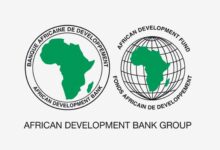Nigeria should domesticate AfCFTA provisions – Expert
 Mrs Franca Achimugu, Strategy Coordinator, Africa Continental Free Trade Area (AfCFTA) Secretariat, has urged Nigeria to work towards the domestication of AfCFTA provisions into Nigeria’s national law to defend against violations.
Mrs Franca Achimugu, Strategy Coordinator, Africa Continental Free Trade Area (AfCFTA) Secretariat, has urged Nigeria to work towards the domestication of AfCFTA provisions into Nigeria’s national law to defend against violations.
She said this at the Manufacturers Association of Nigeria Export Group (MANEG) AfCFTA Training on Tuesday in Lagos with the theme; “Exporting Under the AfCFTA”.
BRANDPOWER reports that the AfCFTA; the largest free trade area in the world, measured by the number of countries participating, would boost intra-Africa trade by 52.3 percent through the elimination of import duties.
AfCFTA offers parties preferential access to a continental market for goods and services imports worth $504.17 billion and $162 billion respectively.
Achimugu stated that if AfCFTA provisions were not domesticated into national law, they might not be employed in defense of cases involving their violations before courts of law neither would they be used for advocacy of rights within the country.
She noted that Section 12 (1) of the Constitution of the Federal Republic of Nigeria, 1999 states that “No treaty between the Federation and other country shall have the force of law except to the extent to which any such treaty has been enacted into law by the National Assembly”.
Achimugu said that failure of Nigeria to domesticate AfCFTA, or lateness in doing so causes unreasonable hardship on other AU member states that intend having commercial relationship with the country.
“This is because the provisions of the treaty cannot be enforced in the domestic courts of the country.
“This would not only discourage trading with the country but also affect the flow of investments into Nigeria; and in addition, stunts the growth of the law in the country.
“The resultant effect of this is that persons and corporate entities from other African member states who transact business with Nigerian companies or are situated in Nigeria cannot enjoy the privileges and benefits of AfCFTA Treaty, as expected,” she said.
Achimugu listed Nigeria’s edge under AfCFTA to include largest economy in Africa, access to global market, large population, thriving industrial sector, improving business environment, sophisticated financial markets and availability of arable land.
She, however noted that key challenges existed in areas of infrastructure, insecurity, production and productivity issues, funding and regulatory constraints and predatory trade practices.
“Nigeria signed the agreement on July 7, 2019, ratified December 4, 2020 and the country has to be very intentional and strategic about its positioning to maximise the benefits of the AfCFTA,” she said.
Mrs Odiri Erewa-Meggison, Acting Chairman, MAN Export Promotion Group (MANEG), described the training as efforts to reposition MANEG to serve in its capacity as the leading and most recognised non-oil export promotion advocacy group in the country.
Erewa-Meggison noted that manufacturers armed with a deeper understanding of the trade bloc, its opportunities, and challenges, would be empowered to make informed decisions and formulate effective strategies for success.
“As the Nigerian government continues to take steps to ensure our full participation in the AfCFTA, MANEG is determined to build the capacity of our members to optimise understanding of AfCFTA and take full advantage of the benefits – as soon as the pathway opens.
“I enjoin every participant to be involved in the conversations, take in as much as possible information from this two-day training and ask the relevant questions so that we extract full value from the training.
“Your participation in this training exemplifies your commitment to investing in the growth and long-term success of your business.
“By the end of this training, our expectation is that your business group will be well-equipped to maximise the benefits of the AfCFTA, she said.
BRANDPOWER reports that MANEG is a subgroup of the Manufacturers Association of Nigeria responsible for representing the interest of Nigerian exporters in the relevant circles.
The body is dedicated to non-oil export promotion in Nigeria and is typically at the forefront, advocating for government policies or legislation that help to boost enterprises exporting non-oil products.












